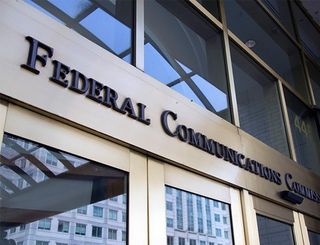ACA: Comcast-NBCU Condition Sunset Needs FCC Action

With the expiration of the program access conditions on the Comcast-NBCU merger, the American Cable Association has asked the FCC to toughen its program access rules.
Those rules still apply to Comcast-NBCU. It is just the added conditions tied to the deal that were sunsetting as scheduled, though some groups had pushed for extending them, citing the Justice Department issues with vertical integration and access to programming that prompted it to file suit against the AT&T/Time Warner merger proposal.
'[B]y all accounts, the programming controlled by Comcast-NBCU is at least as 'must have' as the programming that AT&T would acquire under its proposed merger with Time Warner.
ACA President Matt Polka signaled Monday (Jan. 22) that the harms a vertically integrated Comcast-NBCU still poses are "undiminished" and require "continued significant scrutiny."
ACA would have always preferred stronger conditions than were imposed on the merger, but wants, at the least, given the sunset of the conditions that were imposed, for the FCC to possibly reconstitute parts of them as general rules, including possibly making third-party arbitration and standstill provisions, which were conditions on the deal, part of the program access rules.
ACA is also pushing for its longstanding ask of giving the National Cable Television Cooperative, which represents smaller operators in program carriage negotiations, status to file program access complaints.
Media consolidation critic Public Knowledge has asked the Department of Justice to investigate Comcast-NBCU's compliance with the conditions of the consent decree under which the companies were allowed to merge.
Multichannel Newsletter
The smarter way to stay on top of the multichannel video marketplace. Sign up below.
Those were the conditions that expired this week.
Public Knowledge cited meetings between cable operator RCN and the FCC over what RCN said was anti-competitive conduct by Comcast-NBCU, as well as a letter from Sen. Richard Blumenthal (D-Conn.) seeking an investigation and an extension of the conditions while the investigation is underway.
Public Knowledge said that even if the investigation finds Comcast was in compliance, that would mean the consent decree worked and should be extended and even made tougher.
Asked for a comment on the Public Knowledge ask, Comcast reprised its response when Blumenthal first made the request.
“There is no credible basis to pursue an extension or modification of the consent decree or conditions," the company said at that time. "For nearly seven years, Comcast has met or exceeded all of the commitments and obligations under the NBCUniversal transaction. We have filed six annual compliance reports with the FCC setting forth in detail our exemplary compliance track record, none of which has been challenged or objected to by the Commission or any third parties, including by any member of Congress.
Contributing editor John Eggerton has been an editor and/or writer on media regulation, legislation and policy for over four decades, including covering the FCC, FTC, Congress, the major media trade associations, and the federal courts. In addition to Multichannel News and Broadcasting + Cable, his work has appeared in Radio World, TV Technology, TV Fax, This Week in Consumer Electronics, Variety and the Encyclopedia Britannica.

